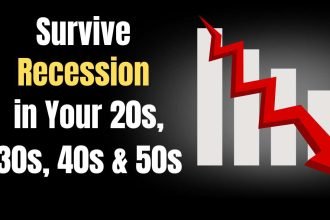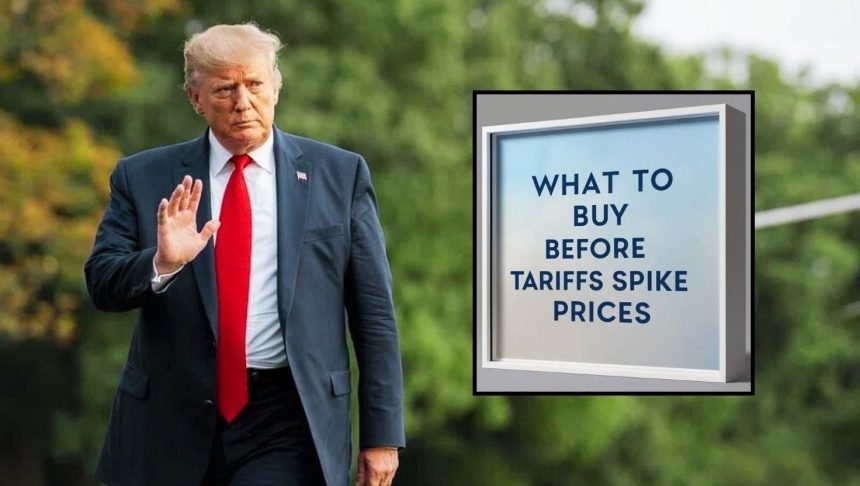As the US economy gets ready for possible changes under Donald Trump’s presidency, suggested tariffs on goods from Mexico, Canada, and China could change the way people buy things.
Americans are asking a very important question: What should I buy now to save money later? Tariffs could hit 25% for goods from Mexico and Canada and 10% for goods from China.
This detailed guide talks about how these tariffs are expected to affect everyday items and gives useful tips for U.S. shoppers who want to keep their costs as low as possible.
Understand the Tariffs and Their Impacts
What Are Tariffs and Why Are They Being Introduced?
Tariffs are essentially taxes on imports, designed to protect domestic industries by making foreign goods more expensive. Trump’s proposed tariffs aim to:
- Curb drug trafficking and illegal immigration.
- Penalize countries perceived to have unfair trade practices, such as China, Mexico, and Canada.
- Encourage American manufacturing by promoting domestically produced goods.
However, these tariffs could have significant unintended consequences, particularly for middle- and low-income households, by raising the prices of imported goods and straining household budgets.
Economic Consequences of Tariffs
Experts caution that tariffs act as a regressive tax, disproportionately affecting lower-income households that spend a larger share of their income on goods. Analysts predict:
- An annual reduction of $1,700–$2,600 in after-tax income for the average U.S. household.
- Price hikes on essentials like clothing, electronics, and household appliances.
While the intention is to bolster domestic industries, the actual benefits for employment and economic growth remain uncertain, with the burden of higher costs likely falling on consumers.
Items to Buy Now to Beat the Tariff Hikes
To minimize financial strain, consider purchasing these items before the tariffs take effect in January:
1. Consumer Electronics
Electronics like smartphones, laptops, tablets, and gaming consoles are expected to see significant price increases. For instance:
- Laptops and tablets: Prices could rise by 46%.
- Gaming consoles: Anticipated price hikes of 40%.
- Smartphones: Likely to cost 26% more.
Since many components are sourced from China, tariffs on these goods could raise production and retail costs. Experts recommend buying electronics now, especially during the holiday season when discounts are plentiful.
2. Home Appliances
Large appliances, including refrigerators, washing machines, and dryers, are also on the tariff hit list. Past tariffs on steel and aluminum have already shown how these costs can trickle down to consumers. For example:
- A 2018 tariff on washing machines increased their prices by 12%, adding $86–$92 per unit.
To save money, consider energy-efficient models that qualify for tax credits under the Inflation Reduction Act—a benefit that may disappear under the new administration.
3. Tools and Hardware
Tools and hardware, often imported from China, are likely to become more expensive. Retailers like Home Depot and brands such as Black & Decker may pass these costs onto consumers. If you’ve been planning home improvement projects, now is the time to stock up on tools and materials.
4. Furniture
Most furniture sold in the U.S. is imported, with major retailers like IKEA already indicating potential price increases. To avoid inflated costs, purchase larger items like couches, tables, and chairs sooner rather than later.
5. Automobiles and Car Parts
The automotive sector will face sharp cost increases due to tariffs on imported vehicles and components. Analysts estimate:
- A 25% tariff on car parts could add $2,100 to the cost of assembling a vehicle in the U.S.
- Cars made in Mexico or Canada could cost $8,000–$10,000 more.
For those in the market for a vehicle, especially electric models eligible for tax credits, purchasing before January could lead to significant savings.
6. Clothing and Footwear
Tariffs on apparel and footwear could lead to higher prices for everyday items. While it may not be practical to stock up on years’ worth of clothing, consider buying essentials like jeans and sneakers during holiday sales.
7. Imported Foods and Beverages
Fresh produce from Mexico, such as avocados, tomatoes, and peppers, might see price hikes due to agricultural tariffs. Similarly, imported liquors like tequila could become pricier. While you can’t stockpile perishables, consider buying non-perishable imported foods and beverages before tariffs take effect.
Smart Financial Strategies to Navigate Tariffs
While stockpiling goods may offer short-term relief, long-term planning is crucial. Here are some strategies to protect your finances:
1. Budget for Increased Costs
With analysts predicting an additional $2,000 in annual expenses for the average household, budgeting is key. Start by setting aside a small amount from each paycheck to prepare for potential cost increases.
2. Shop Smarter
- Look for deals, coupons, and discounts during the holiday season.
- Consider buying in bulk to save on frequently used items like toiletries and pantry staples.
- Explore secondhand markets for items like furniture and tools.
3. Support Local Businesses
Buying locally produced goods can help mitigate the impact of tariffs. Farmers’ markets and local manufacturers often offer high-quality products that aren’t subject to import taxes.
4. Prioritize Energy Efficiency
Take advantage of federal credits for energy-efficient home improvements. For example:
- The Energy Efficient Home Improvement Credit allows you to claim 30% of eligible expenses, up to $1,200 annually.
- Switching to energy-efficient appliances and vehicles can offset some of the financial strain caused by tariffs.
5. Diversify Shopping Options
Explore alternative retailers and brands that offer competitive pricing. Online platforms and warehouse clubs like Costco may provide cost-effective solutions for bulk purchases.
The Bigger Picture
While tariffs aim to protect domestic industries, their broader economic implications remain uncertain. Experts urge caution against panic buying and emphasize the importance of informed decision-making.
What Not to Do
- Avoid stockpiling perishable goods that may expire before use.
- Resist unnecessary debt to finance large purchases; high-interest rates can outweigh savings.
Focus on Financial Resilience
- Track spending and identify areas where you can cut back.
- Increase your emergency savings fund to prepare for unexpected expenses.
Final Thoughts
As the U.S. economy braces for potential tariff-related disruptions, proactive planning is essential.
By making strategic purchases now and adopting smarter financial habits, consumers can mitigate the impact of price hikes on their budgets.
Remember, the best way to navigate these changes is not through fear but through preparation.
Stay informed, shop wisely, and take control of your financial future. Your wallet will thank you.





